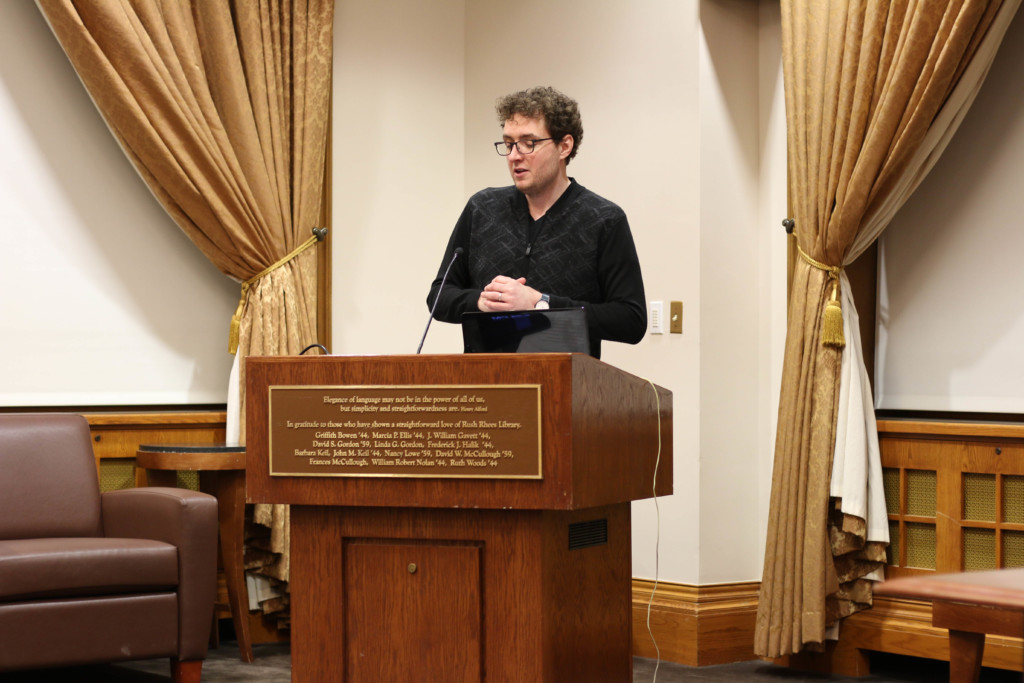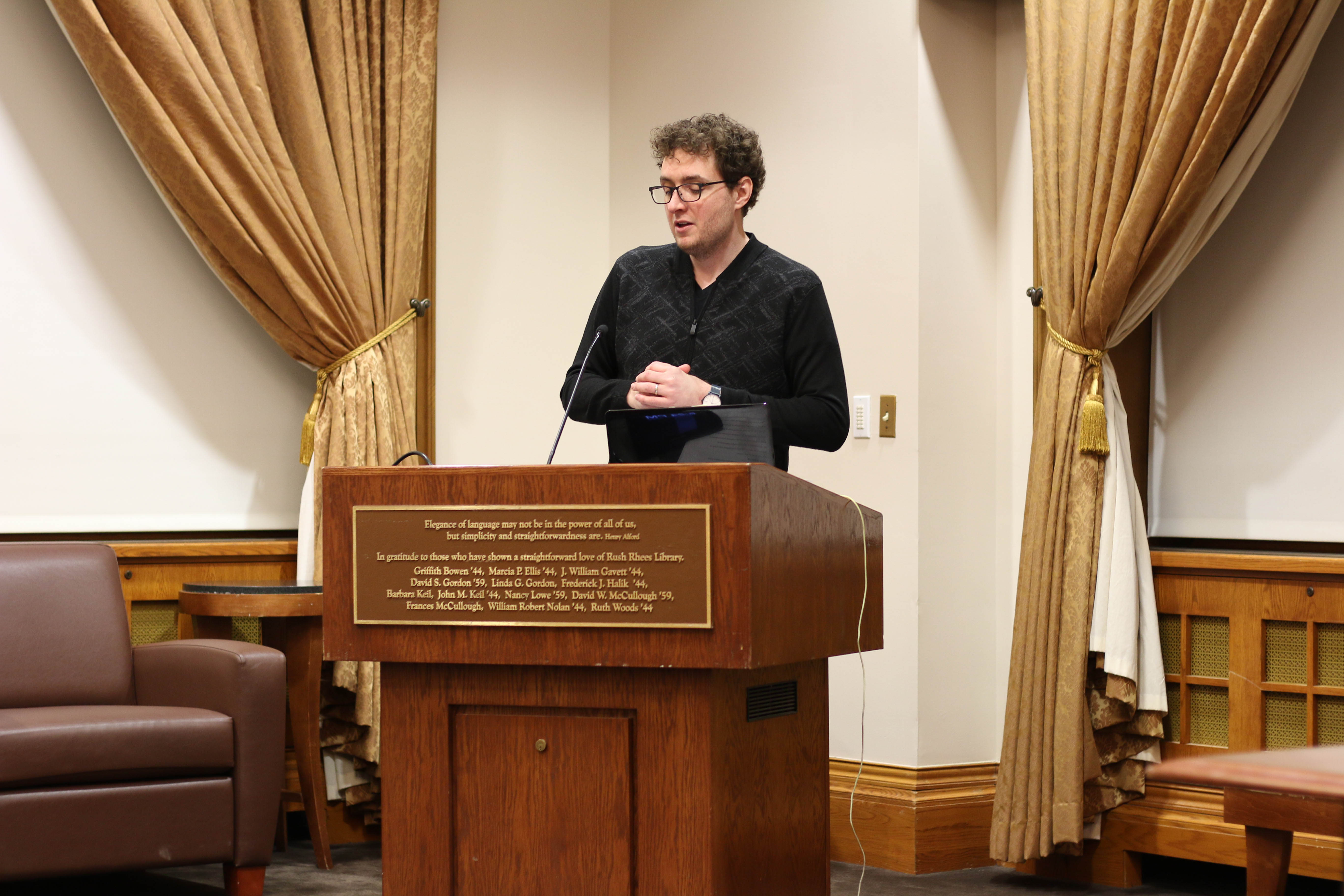Journalist and academic Patrick Blanchfield encouraged listeners to abandon partisan responses and called attention to U.S. gun violence and the reactions it prompts, which he presented as a phenomenon called “Gunpower,” also the name of his upcoming book.
In his presentation, in the Hawkins-Carlson room on Tuesday, Blanchfield described Gunpower as a way in which guns are distributed in some contexts and restricted in others. He called it a “uniquely American approach to managing disorder and social reproduction.”
“Gunpower is a system for assuring that, in net, certain kinds of people keep getting shot, and certain kinds of people don’t,” Blanchfield said.
Blanchfield told the audience that the idea of gun control is actually more bipartisan than often perceived. Gun control, Blanchfield said, means more than just limiting the sale of guns. The term also applies to increasing firearms, prosecutions and sentencing. “We have a system of gun control that, more than any other thing, focuses on prosecuting and imprisoning […] minorities and the poor,” Blanchfield said. According to Blanchfield, “under Donald Trump and Jeff Sessions, the US Justice department has more aggressively pursued gun control than any other period in its history.”
Blanchfield structured his presentation around two historical examples: a school shooting in Stockton, California in 1989, and a massacre of a Wintu Native American community at the Sacramento River in California in 1846. Both incidents, Blanchfield argued, resulted in the further upholding of a social hierarchy with guns. “Their horror is singular,” Blanchfield said. “But also — and this is absolutely key — they are not unique.”
Blanchfield was introduced by UR professor of Religion Joshua Dubler, who contextualized the talk around the DPS proposal to bring armed officers to the River and Eastman campuses. Speaking to any members of the ad hoc committee on the proposal that may have been in attendance, Dubler encouraged creative thinking in response to the issue at hand.
“You have a difficult task before you,” he said. In November, Dubler gave a presentation fervently against the proposal at the Faculty Senate meeting that was also the site of the Minority Students’ Advisory Board sit-in.
In a Q&A after the talk, one attendee asked Blanchfield whether his idea of Gunpower was not in reality simply white supremacy. Blanchfield responded that he believes Gunpower and white supremacy to be fundamentally linked. “The use of guns as a tool for acquiring territory and performing [life or death politics] is […] part of how we define [who is] white,” Blanchfield said.
He added, “There was a period of time when it was absolutely transparent as the media evolved that George Zimmerman became white because he killed Trayvon Martin.”
Another attendee asked Blanchfield what could be done about the phenomenon of Gunpower, particularly in the case of UR and the current proposal. Blanchfield responded that an important step was to “refuse the false choice.” He viewed this false choice as the idea that if UR does not arm officers, it is therefore to be blamed if a mass shooting were to occur.
Blanchfield’s talk was sponsored by a slew of UR departments, institutes, and projects plus a few local organizations, like the Rochester Prison Education Project. “I don’t take all of these co-sponsorships as an explicit endorsement of the contents of tonight’s talk,” Dubler said in his introduction to Blanchfield. “But I do take it to be an endorsement of the seriousness with which members in our community take these issues that we’re addressing tonight.”



